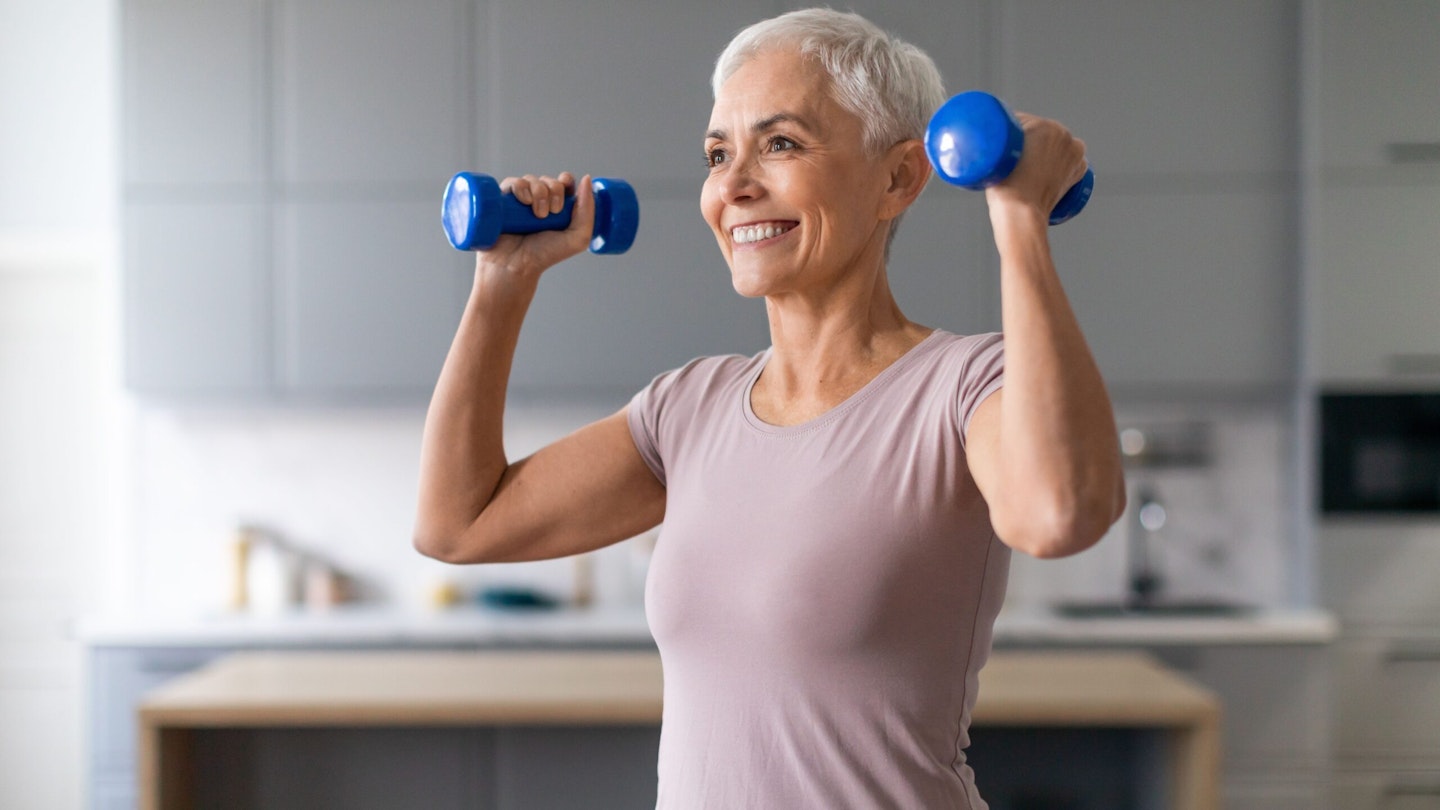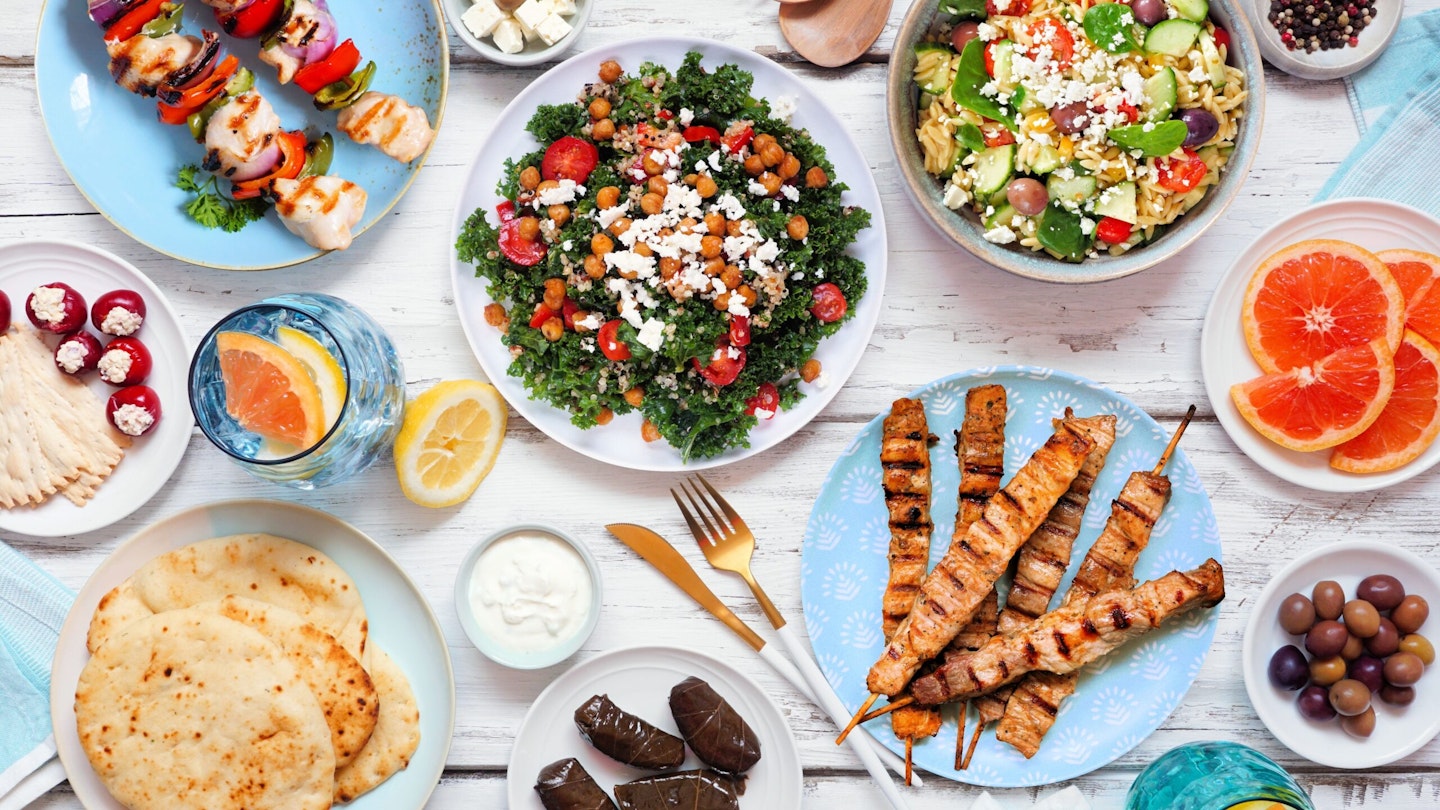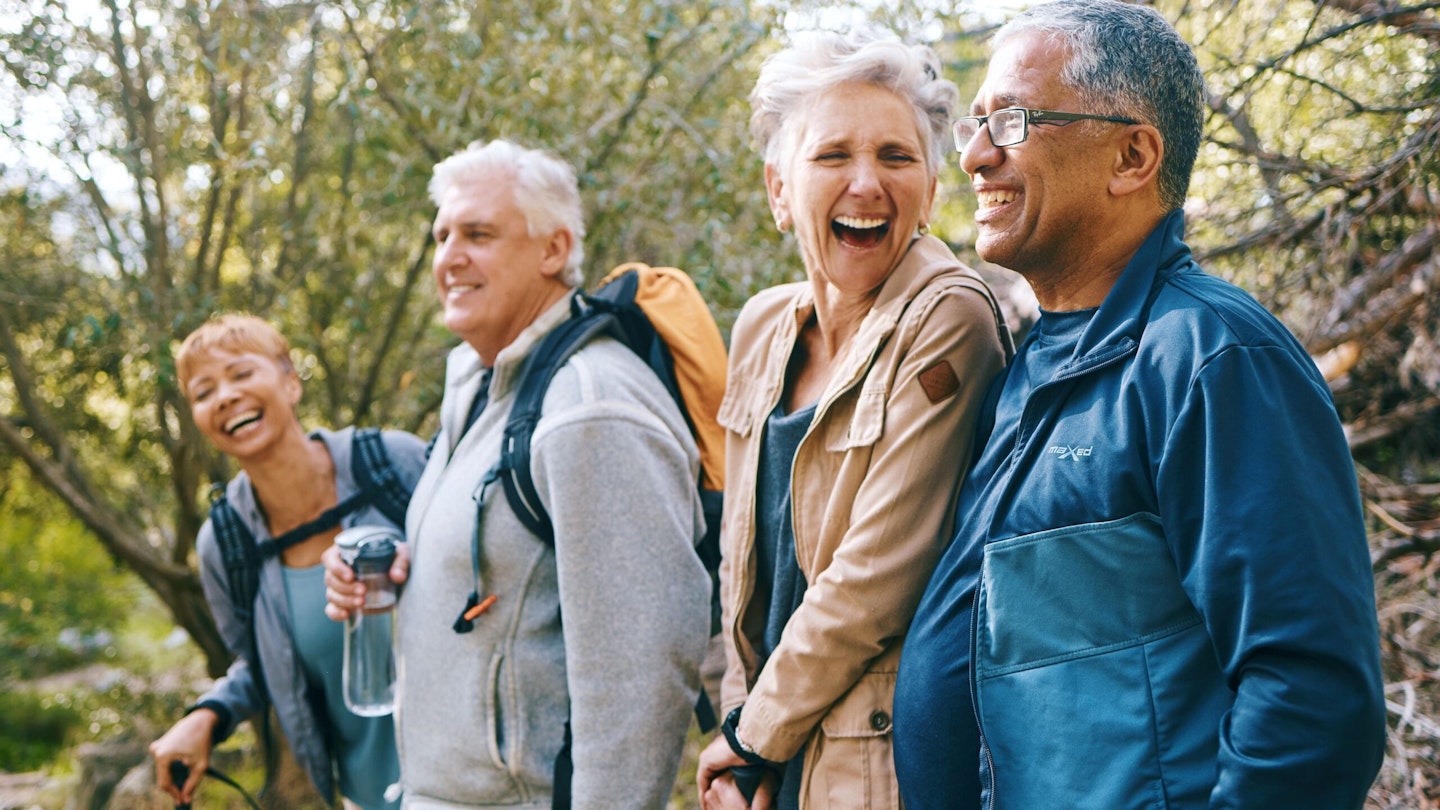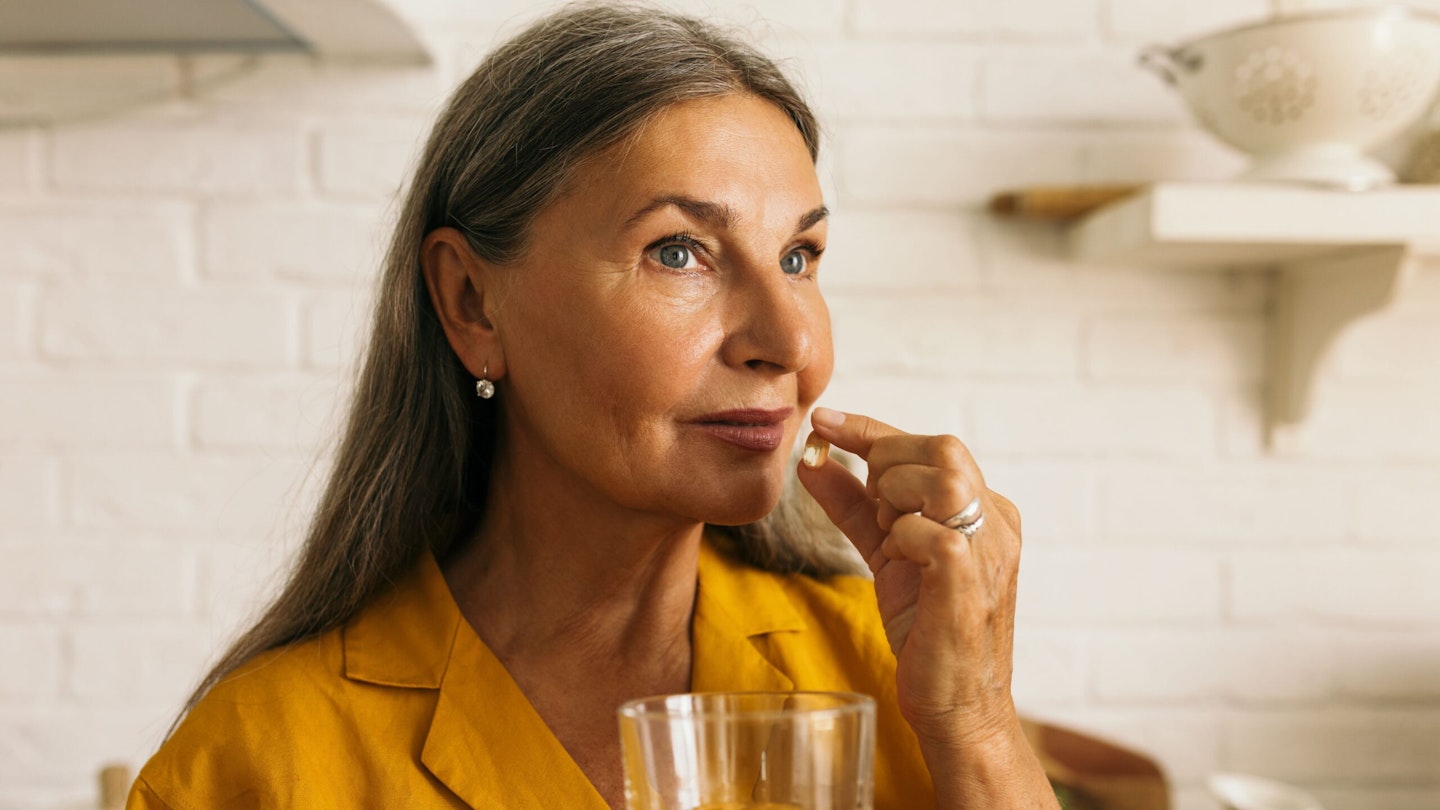Find out the top tips for ageing well from our fitness expert
Ageing comes to us all, and it’s a privilege. However, many of us dread ageing or, to be more specific, we dread ‘feeling old’. And that’s understandable.
There’s a difference between ‘feeling old’ and ‘ageing well’, and the part we all dread is not being able to move as well as we used to, or our minds not being as sharp. But you can learn how to age well, and I’m going to share my top tips with you.
I’ve been working as a personal trainer and strength coach for many years now, and I specialise in helping women over 50. I can’t make you look like you’re 30, but I can improve your joint pain, the way you move, your ability to go about everyday tasks, and, crucially, I can help you redefine your whole mindset around how to age well.
Exercise for longevity and vitality

Let’s start with the biggest hurdle a lot of us face – exercise. There’s no two ways about it, regular exercise is the number one way to ensure you age well. The NHS recommends 150 minutes of exercise per week, with a minimum of two strength sessions.
We need to exercise our heart and lungs to ensure they keep working efficiently, and we also need to strengthen our bones and joints to prevent falls, osteoporosis, osteoarthritis and worse.
Best exercises for ageing well
Try simple exercises that work multiple muscle groups at once – we call these compound movements. This enables you to do more work in less time. You also want to do exercises that replicate activities of daily living. For example, a squat replicates getting in and out of a chair. An overhead press mimics putting items into a high cupboard.
Strength training for older adults
Strength training in some form is crucial to support our joints and bone density, and in understanding how to age well. If you’re reading this and thinking ‘I can’t do that because of my knees/ hips, back’... That’s exactly the reason you should be doing it!
Strength training doesn’t necessarily mean lifting heavy weights in a gym. You can use bodyweight, resistance bands or dumbbells. If you’ve not exercised in a long time or mobility is an issue for you, you can start with simple chair exercises.
Use compound movements, think about what you do day to day, and strengthen those movement patterns. If you lift small children from the floor, learn how to deadlift. If you struggle getting in and out of the car, learn side lunges, squats, and torso twists.
I strongly recommend that everyone learns how to get up and down from the floor with no support – this movement could literally save your life if you fall and would be my number one tip for how to age well.
Sleep tips for ageing well

Something that often eludes us as we age is a good night’s rest. Unfortunately, poor sleep can affect all areas of our life and leave us feeling every single one of our years! Getting into some good sleep habits can reduce stress, help us maintain our weight, give us more energy and even help us to live longer.
The importance of sleep for healthy ageing
Our brains need sleep to replenish energy levels and to process events, while our bodies need rest to repair damage and support overall wellbeing.
Most older adults need a minimum of seven hours sleep a night. If you’re regularly getting less than six per night, then you’re putting yourself at risk of dementia and stroke-related brain changes – and this could happen as early as middle age.
Best sleep tips for ageing adults
Set a sleep schedule – Try to go to bed and wake up at roughly the same time each day.
Develop a bedtime routine – Try to relax and unwind before heading to bed. Maybe take a bath, read a book, or listen to some calming music.
Avoid electronics – Put your phone away at least an hour before bed.
Get some natural light on waking – Try to get at least 30 minutes of natural daylight a day, and as early on in the day as possible.
Avoid caffeine, nicotine and alcohol – Keep these to a minimum and especially avoid them before bed as they can keep you awake.
Exercise regularly – Follow my tips above.
Keep your bedroom dark and cool – A restful environment at a good temperature can naturally aid sleep.
Consider magnesium – For peri and post-menopausal women, magnesium can help regulate sleep by relaxing muscles and reducing stress.
Optimal diet for healthy ageing

Not weight loss... what I’m referring to is how we eat. When it comes to how to age well, it’s important to recognise the relationship between the food we eat and the effect it has on our bodies, including our joints, skin, energy levels and sleep. It’s also important to note that we need fewer calories as we age, because our metabolism slows. That’s not to say we need to starve ourselves, though. Fill up on the foods listed below and enjoy the health benefits.
Follow a Mediterranean diet for healthy ageing
Without doubt, a Mediterranean diet is best for healthy ageing. There is strong evidence to suggest that these foods help heart health, reducing the risk of stroke and early death.
The Mediterranean diet focuses on vegetables, fruits, oily fish such as salmon, and healthy fats such as olive oil and nuts. It minimises processed foods.
Best foods for ageing well
Protein – Focusing on protein is especially important for women post-menopause, when our metabolism slows. Sources of protein such as chicken, fish, eggs, and Greek yogurt will help keep us fuller for longer.
Whole grains – Grains including oats, wholewheat pasta and quinoa offer good sources of fibre and can also help reduce inflammation.
Fruits and vegetables – Eat the rainbow! Including a wide range of different fruits and vegetables ensure our vitamin and mineral needs are being met as well as adding more fibre to our diet.
Healthy fats – Nuts, avocados and olive oil are all beneficial in small amounts (because of their high fat content) as they help support lubrication around the joints and also help heart health.
Building social connections

Loneliness can often become an issue as we age, especially if we live alone and aren’t as mobile as we once were. Lack of transport can also be an issue. However, socialising can actually help us live longer, and the overall health benefits of some company are huge.
How being social helps you age well
When it comes to understanding how to age well, social interaction stimulates the brain and sharpens thinking skills, thereby slowing cognitive decline. There are strong links between regular exercise and social interaction and a lower risk of developing dementia. Many studies have supported this and emphasised that being social as we age can actually help us live longer. Engaging with friends and family has positive benefits for our mental wellbeing, helping us to become more resilient, satisfied, happier, less stressed and to sleep better.
Staying social as you age
Nowadays we live in a society more connected than ever. Technology has its faults but it’s also great for keeping in contact with family and friends. Consider investing in a tablet so you can FaceTime with family far away.
Combining exercise with social activity is also a great choice. Join an exercise class, walking group, or just get outside for some steps and say hello to passers-by.
The U3A, Age UK and your local council will also hold details of groups and activities in your area. You could even take up a new hobby, helping to keep your brain active – another top tip for how to age well.
Health and Supplements to support healthy ageing

Supplements aren’t magic pills and won’t make up for not doing any of the steps above, but they are useful. For women in particular, supplements can really help both physical and mental wellbeing, helping us to enjoy a healthier lifestyle and age well.
Anti-ageing supplements for older adults
Multivitamins – It's always a good idea to take a multivitamin with iron, so the basics are covered. Usually full of all vitamins A-Z, a quality multivitamin is a good line of defence.
Vitamin D- The government advises everyone to supplement Vitamin D during the autumn and winter months to regulate calcium in the body.
Vitamin C – Can help reduce signs of ageing by helping collagen production in the body
Vitamin E- Supports eye health, the immune system and brain health.
Omega 3 – Helps reduce inflammation in the body and aids better brain health.
Collagen – Helps the condition of skin and hair by reducing wrinkles and dryness. Also helps lubricate joints.
Hyaluronic Acid – Works with collagen to support joint health in the body.
Magnesium – Helps regulate sleep (especially in menopause) and manage hot flushes.
Ashwagandha – A herbal supplement that can aid sleep and reduce stress. Especially useful during menopause.
Following every tip on this list won’t turn the clock back 30 years, and unfortunately none of us have a magic wand. But by implementing a few of the steps above – trying to move more and opting for healthy, whole foods, for example, we can really take control of the ageing process. Remember, it’s a privilege denied to many, so we need to enjoy every second.
Becky Fuller is a senior digital writer for Yours.co.uk. She is also a fully qualified personal trainer and strength coach, specialising in fitness and wellbeing for over 50s. Prior to joining Yours, Becky was a fitness writer for Saga, and a freelance entertainment and theatre journalist. Becky is passionate about helping people to move well and discover the many benefits of strength training.
